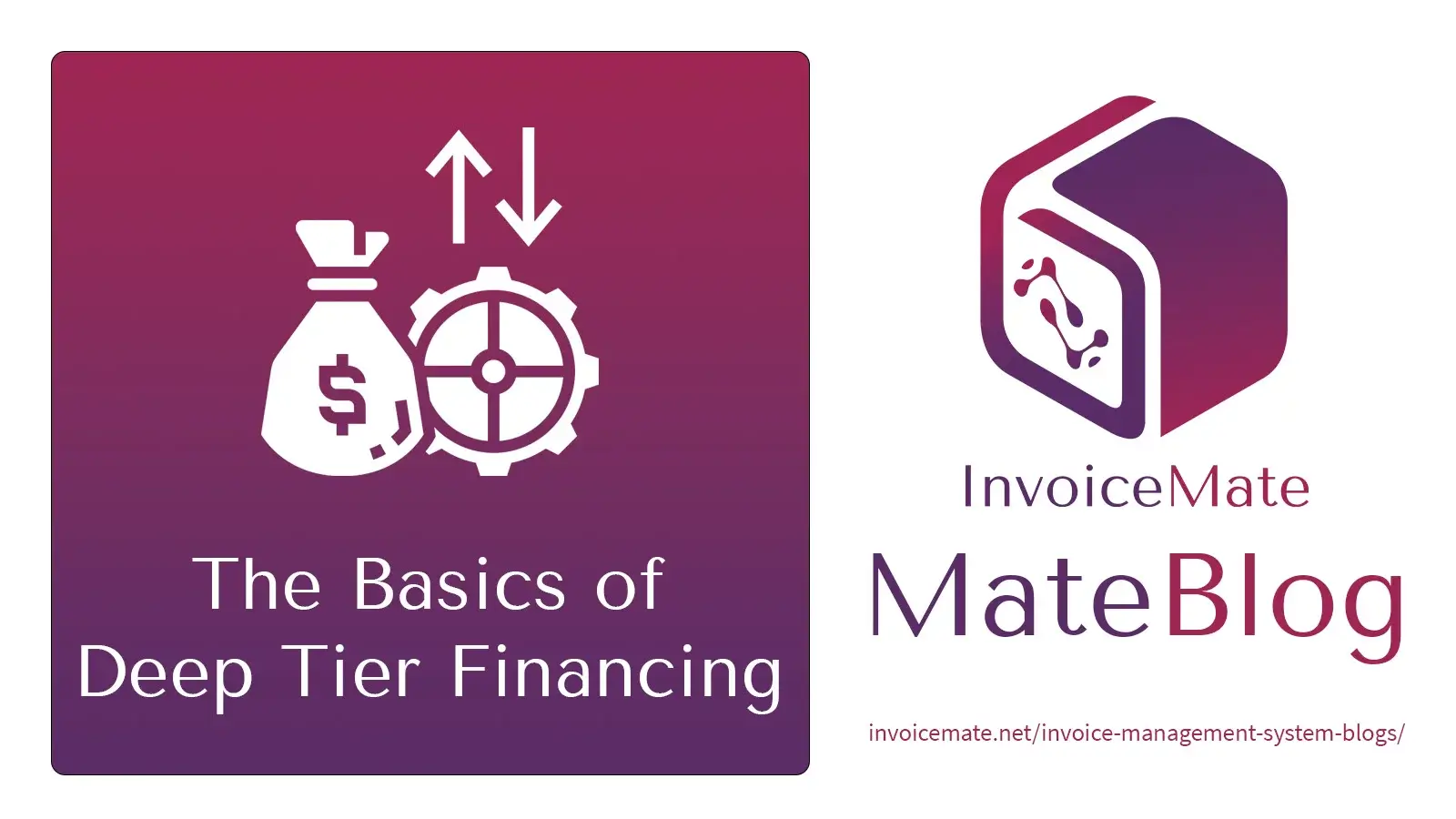Connect With Us
The Basics of Deep Tier Financing

Deep tier financing is a financing used within the supply chain. In these lines, we will take a look at the basics of deep tier financing and its benefits for the supply chain ecosystem.
The supply chain ecosystem is a complex business model involving multiple tiers of businesses with different business approaches. They are very formal at the top level but get different as you go down the pyramid.
What is Deep Tier Financing?
Deep-tier financing refers to a type of funding that occurs in complex supply chains, particularly in the manufacturing and distribution industries. It involves the provision of financial support to suppliers located further down the supply chain, typically at the lower tiers.
In a traditional supply chain, the customer places an order with a supplier, who then manufactures or sources the goods and delivers them to the customer. However, in some cases, the supplier may require additional funding to fulfill the order, particularly if they have limited working capital or face cash flow challenges. In many industries, suppliers themselves rely on sub-suppliers to fulfill their orders. These sub-suppliers may also have their own suppliers, creating a multi-tiered structure. This is where deep-tier financing comes into play.
Deep-tier financing recognizes that the financial health of suppliers at lower tiers can significantly impact the entire supply chain. If a sub-supplier faces cash flow problems or struggles to obtain financing, it can lead to disruptions, delays, or even production stoppages, affecting the entire supply chain’s efficiency and productivity.
Deep-tier financing involves a financial institution or third-party provider extending credit or funding to the supplier, allowing them to produce or source the goods needed to fulfill the customer’s order. The financial institution considers the customer’s creditworthiness and reliability when assessing the supplier’s eligibility for financing.
Deep-tier financing can be in various forms, such as loans, factoring, invoice discounting, or supply chain finance. The specific terms and arrangements depend on the parties involved and the nature of the supply chain. In some cases, the primary manufacturer or brand owner may directly provide the financing, while in others, financial institutions or specialized intermediaries facilitate the process.
Benefits of Deep Tier Financing
Deep Tier financing can be very beneficial for the whole supply chain ecosystem in general and the lower tiers in particular. Deep tier financing can offer several benefits within the supply chain industry, particularly for suppliers and manufacturers. Here are some potential advantages of deep tier financing in the supply chain:
Increased Working Capital:
Deep tier financing provides suppliers with access to additional working capital. It allows them to obtain financing based on their accounts receivable or purchase orders, enabling them to bridge the gap between the time they deliver goods or services and the time they receive payment. This can help suppliers manage their cash flow effectively and meet their operational needs.
Reduced Cash Conversion Cycle:
The cash conversion cycle refers to the time it takes for a company to convert its investments in inventory into cash flow from sales. Deep tier financing can help reduce this cycle by providing timely financing to suppliers, enabling them to replenish inventory and fulfill orders without waiting for payment. This can improve the overall efficiency of the supply chain and reduce the time it takes for products to reach the end customers.
Enhanced Supplier Relationships:
By offering deep tier financing options, manufacturers and buyers can strengthen their relationships with suppliers. The availability of financing can instill confidence in suppliers, ensuring a stable and reliable source of funding. This can lead to better collaboration, increased loyalty, and improved supplier performance within the supply chain.
Mitigation of Supply Chain Disruptions:
Supply chain disruptions can occur due to various factors, such as delayed payments, cash flow constraints, or unexpected events. Deep tier financing can help mitigate these disruptions by providing suppliers with financial stability and liquidity. It allows suppliers to continue their operations smoothly, even in challenging circumstances, reducing the impact of disruptions on the overall supply chain.
Encouragement of Supplier Diversity:
Deep tier financing can promote supplier diversity within the supply chain. By providing financing options to a broader range of suppliers, including smaller or minority-owned businesses, companies can create a more inclusive and diverse supplier network. This not only fosters social and economic benefits but also enhances innovation and competitiveness within the supply chain ecosystem.
Improved Supply Chain Efficiency:
Deep tier financing can contribute to overall supply chain efficiency by reducing bottlenecks and delays. With access to financing, suppliers can optimize their inventory management, fulfill orders promptly, and invest in operational improvements. This can result in faster order fulfillment, reduced lead times, and improved customer satisfaction.
Fintech & Deep Tier Financing
InvoiceMate & Deep Tier Financing
- Streamlined financing Process Within the Same Application
- AI-Powered Enhanced Data Analytics
- Improved Customer Experience
- Expanded Access to Financing with Invoice Financing Marketplace
- Innovative Risk Assessment Model Involving Blockchain and AI
- Partnership Opportunities for Financing Institutions/Non-Financial Platforms through embedded financing solutions
To learn more about InvoiceMate visit
or write us at
